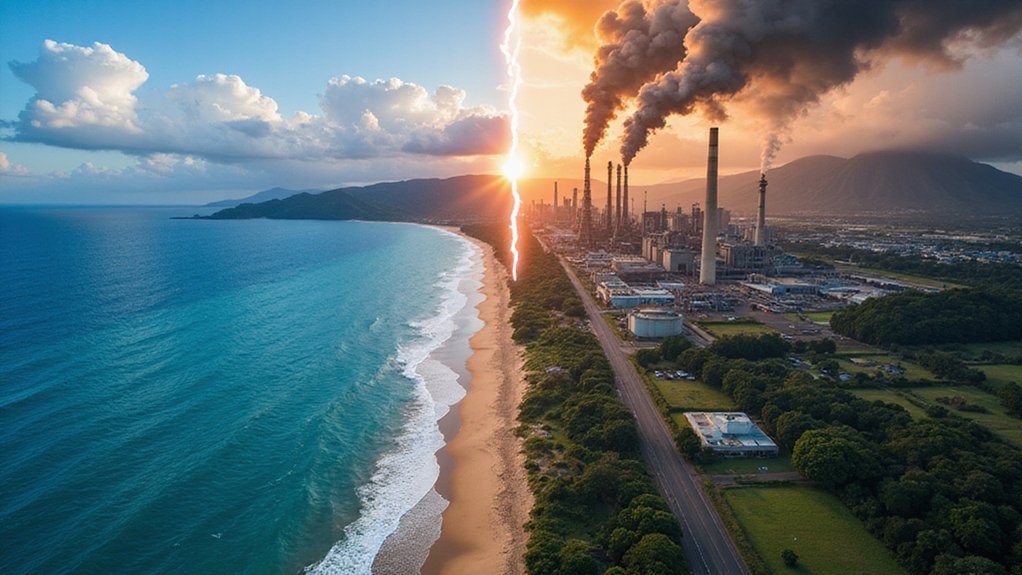Oregon’s House Bill 3666 has ignited fierce debate. The legislation would create annual wildfire safety certifications for utilities, but critics call it a “get-out-of-jail-free card.” Utility giants like PacifiCorp—already facing billions in wildfire liability claims—naturally love it. Meanwhile, trial lawyers warn it shields corporations from accountability after disasters. Rep. Marsh insists no absolute immunity exists in the bill. Funny how companies facing massive lawsuits suddenly care about “safety certifications.” The battle lines are clearly drawn.
A shield for utility companies or necessary reform? Oregon’s House Bill 3666, introduced in 2025, has ignited a firestorm of debate over wildfire prevention standards and utility accountability. The bill would establish annual wildfire safety certifications for utilities, issued by the Oregon Public Utility Commission. Sounds reasonable. Except for one tiny detail that has lawyers up in arms.
Critics argue the legislation creates a liability shield for power companies. The Oregon Trial Lawyers Association didn’t mince words, calling it a potential “get-out-of-jail-free card.” Meanwhile, bill sponsor Rep. Pam Marsh insists it doesn’t provide “absolute immunity.” Legislative counsel has officially confirmed no immunity is granted to certified utilities under the proposed bill. Yeah, right. That’s what they always say.
The bill has utilities cheering and trial lawyers fuming. Immunity in disguise? Follow the money.
PacifiCorp and Portland General Electric have thrown their full weight behind the bill. No surprise there. PGE claims insurance premiums have tripled recently, and utilities say they need to “zero out risk” to prevent losing insurance altogether. Their enthusiasm for regulation? Follow the money.
The stakes couldn’t be higher. The 2020 Labor Day fires killed 11 Oregonians and destroyed 4,000 homes. PacifiCorp was found liable in 2023 for hundreds of millions in damages, with parent company Berkshire Hathaway facing $8 billion in claims. That’s billion with a B.
A separate proposal, House Bill 3917, would create a wildfire victim compensation fund financed by utilities—with a catch. Half could come from ratepayer dollars, and victims who accept funds waive their right to sue. Convenient.
Meanwhile, utilities have increasingly resorted to planned power shutoffs during high-risk weather. Great solution. Let’s prevent fires by creating new safety issues during heat waves.
The Public Utility Commission is working to standardize wildfire planning, with $6 million proposed for 2025 preparation. This approach reflects modern stakeholder theory principles that emphasize balancing corporate responsibilities with societal interests. Legislators are debating $280 million in biennial funding for prevention efforts.
The central question remains: Is this meaningful reform or a corporate escape hatch? For wildfire victims seeking justice and communities facing future risks, the answer matters. A lot.






